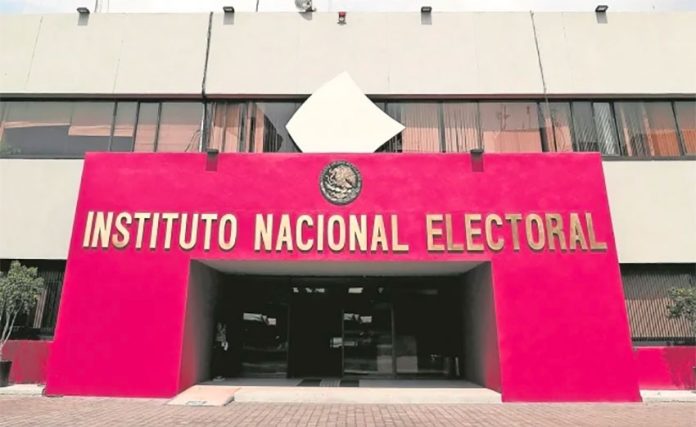The National Electoral Institute (INE) has dismissed President López Obrador’s pledge to be a “guardian” of the 2021 midterm elections.
“Mexico already has an elections guardian, an autonomous constitutional body that is the guarantor of our democracy,” INE president Lorenzo Córdova said on Monday.
INE councilor Ciro Murayama highlighted that the electoral institute is the sole body responsible for organizing and overseeing elections.
“The INE is not part of the opposition nor does it align itself with the government: it’s independent and autonomous, that’s the way it will be in 2021,” he said.
The officials’ defense of the electoral institute came after López Obrador claimed that the INE is the most expensive electoral body in the world and has “never guaranteed clean and free elections.”
The president, who claimed fraud was the reason for his losses at the 2006 and 2012 presidential elections, said that he will personally ensure that the will of the people is respected at next year’s midterms.
“So that there is no electoral fraud, I’ll become a guardian so that the freedom of citizens to freely elect their authorities is respected. I know that the INE already exists, I’m not going to get involved in that; I’m just obliged to report if there are any fraud attempts,” López Obrador said.
The president’s remarks were interpreted by some as a sign that the autonomy of the INE is under threat.
Former electoral tribunal judge María del Carmen Alanis said that López Obrador’s comments are cause for concern and charged that it is “a fallacy” to say that the INE has allowed fraud to occur.
Speaking at a political forum, she said there are “ominous signs” that efforts are being made to return to a time when the power of the Mexican state was concentrated in one sole individual, namely the president.
National Action Party Senator Gustavo Madero also said that there are signs that the government is attempting to return Mexico to how things were in the past. (The Institutional Revolutionary Party dominated Mexican politics for most of the 20th century and used a range of questionable and/or illegal practices to ensure that its power was perpetuated).
Madero said that he was concerned about what might happen to the INE, “but beyond that I’m worried about the threat to our democracy.”
Benit Nacif, a former INE councilor, said that it would be “an enormous backward step to return to what we fortunately left behind” and asserted that the autonomy of the electoral institute must be protected.
Experts who spoke with the newspaper El Universal said that López Obrador doesn’t have the legal authority to become an elections guardian,” pointing out that in addition to the INE, the federal electoral tribunal and the electoral prosecutor’s office have a role to play in ensuring that elections are free and fair.
María Eugenia Valdés Vega, a researcher at Mexico City’s Metropolitan Autonomous University who specializes in electoral processes, said that the INE has “evolved very favorably” in its organization and supervision of elections and “in this there cannot be a backward step.”
Ivonne Acuña Murillo, a politics professor at the Iberoamericana University, claimed that López Obrador had directed his electoral guardian message to the INE as well as opposition parties and state governors as a warning that he will not be afraid to call out what he sees as fraudulent electoral conduct.
While the president can’t do anything from a legal standpoint to oversee elections and prosecute fraud, he can “in terms of communication” and from a political perspective, she said.
Jessica Rojas Alegria, a specialist in electoral law at the National Autonomous University, said that while everyone has the right to free speech the president’s claim that he will oversee the elections is “dangerous” and “out of place.”
Source: El Universal (sp), El Financiero (sp)
